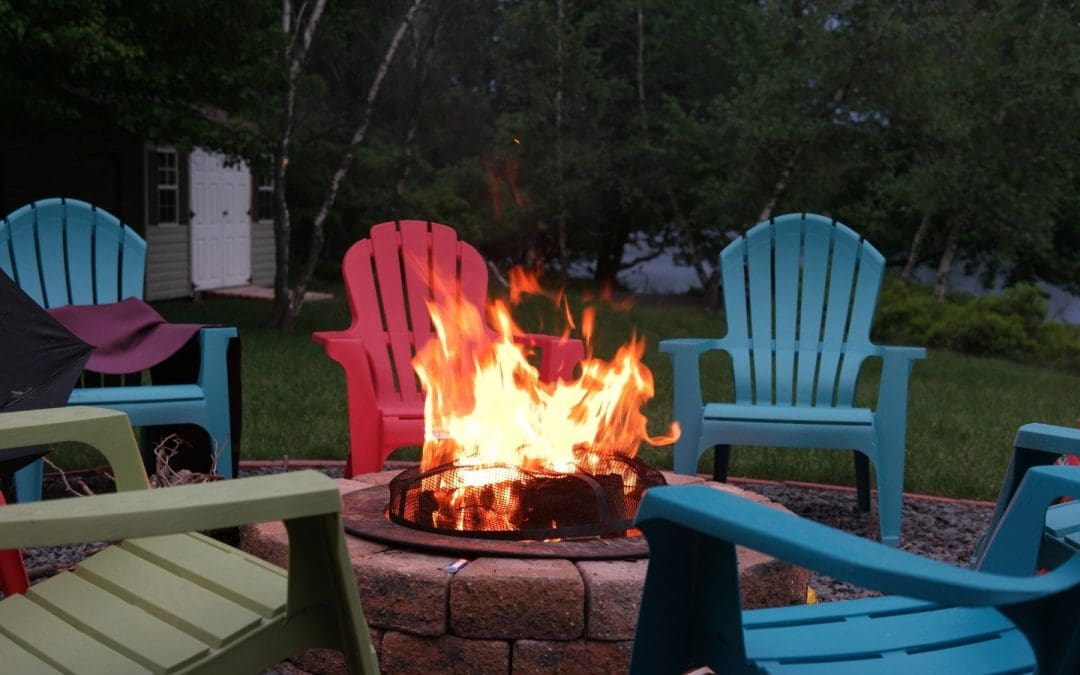Summer is here, bringing longer days, warmer weather, and the perfect opportunity for outdoor activities. While we all love to embrace the season, it’s also a crucial time to turn our attention to fire safety. The unique summer conditions, from dry vegetation to increased use of grills and fireworks, present specific risks that homeowners must be aware of.
The Outdoor Risks: Grills, Fire Pits, and More
Let’s start with the heart of summer entertaining: your backyard. Grilling is a national pastime, but it’s also a leading cause of home fires. Whether you’re a charcoal traditionalist or a gas grill enthusiast, simple precautions can make all the difference. Always place your grill a safe distance from your home, deck railings, and any overhanging branches. Keep a watchful eye on it while in use, never leaving it unattended. For gas grills, check the hoses for leaks before each season, and for charcoal grills, allow coals to cool completely before disposing of them in a metal container.
Fire pits are popular for evening gatherings and also require attention. Ensure your fire pit is on a level, non-combustible surface, well away from structures, fences, and anything flammable. Always have a water source or fire extinguisher nearby, and never leave a burning fire pit unsupervised. When you’re done enjoying the warmth, thoroughly extinguish the embers.
Fireworks, while undeniably spectacular, are also incredibly dangerous. The safest approach is to attend public fireworks displays. If you do choose to use consumer fireworks, always check your local regulations – many areas have outright bans. If permitted, only purchase legal fireworks, use them outdoors in a clear, open area, keep a bucket of water or a hose nearby, and never allow children to handle them. Duds should be soaked in water before disposal.
Inside Your Home: Hidden Summer Dangers
While much of our focus shifts outdoors in summer, indoor fire safety remains paramount. Air conditioning units, while essential for comfort, can pose a risk if not properly maintained. Ensure your HVAC system is serviced regularly, and keep the area around outdoor condenser units clear of debris. Portable fans and air conditioners should be plugged directly into wall outlets, avoiding extension cords, which can overheat.
DIY projects are also popular during the summer months. Whether you’re sanding, painting, or using power tools, be mindful of flammable materials and proper ventilation. Store paints, solvents, and other combustible liquids in approved containers in a well-ventilated area, away from heat sources. Sawdust and other debris can also be highly flammable, so good housekeeping is essential.
Overloaded electrical outlets are a concern year-round, but summer can exacerbate the problem with additional fans and charging devices. Avoid “daisy-chaining” power strips and ensure outlets aren’t overloaded. If an outlet feels warm to the touch, unplug devices immediately and have them inspected by a qualified electrician.
Be Prepared: The Power of Prevention
Beyond addressing specific hazards, a proactive approach to fire safety is your best defense. Ensure you have working smoke detectors on every level of your home, inside and outside sleeping areas. Test them monthly and replace batteries twice a year. Consider interconnected smoke detectors, so when one sounds, they all sound.
A fire extinguisher is an invaluable tool to have on hand. Keep one readily accessible in your kitchen and another near your grill or outdoor entertaining area. Learn how to use it before you need it – remember the PASS acronym: Pull, Aim, Squeeze, Sweep.
Finally, establish and practice a home escape plan with your family. Ensure everyone knows two ways out of every room, and designate a safe meeting place outside your home. In the event of a fire, early detection and a clear escape plan can save lives. By taking these thoughtful steps, you can enjoy all the joys of summer with the peace of mind that your home and loved ones are safe.
Frequently Asked Questions
How often should I clean my grill?
You should clean your grill grates after every use. A more thorough cleaning, including the burner covers and drip pan, should be done at least once a month during grilling season, or more often if you grill frequently.
Are there any specific types of outdoor lighting that are safer than others in summer?
Solar-powered outdoor lighting is generally very safe as it eliminates the need for electrical cords. If using string lights or other electrical outdoor lighting, ensure they are rated for outdoor use and are not damaged.
What should I do if I smell gas near my grill?
Immediately turn off the gas at the tank. If the smell persists, evacuate everyone from the area and call your gas provider or fire department from a safe distance. Do not attempt to light the grill or any other appliance.
Can I use an extension cord for my air conditioner?
It is generally not recommended to use extension cords for air conditioners, especially window units, as they draw a significant amount of power and can overload the cord, leading to overheating and fire. Always plug air conditioners directly into a dedicated wall outlet.
How can I make my home more fire-resistant against wildfires?
Focus on creating defensible space by clearing combustible materials around your home, maintaining your landscaping, and choosing fire-resistant building materials if you are undertaking renovations. Consult with local fire authorities for specific recommendations for your area.
M&T Inspection Services offers home inspections to customers in Indianapolis. Contact us to request our services.

